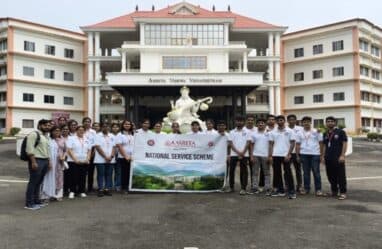10 Best Economic Books for Commerce Students
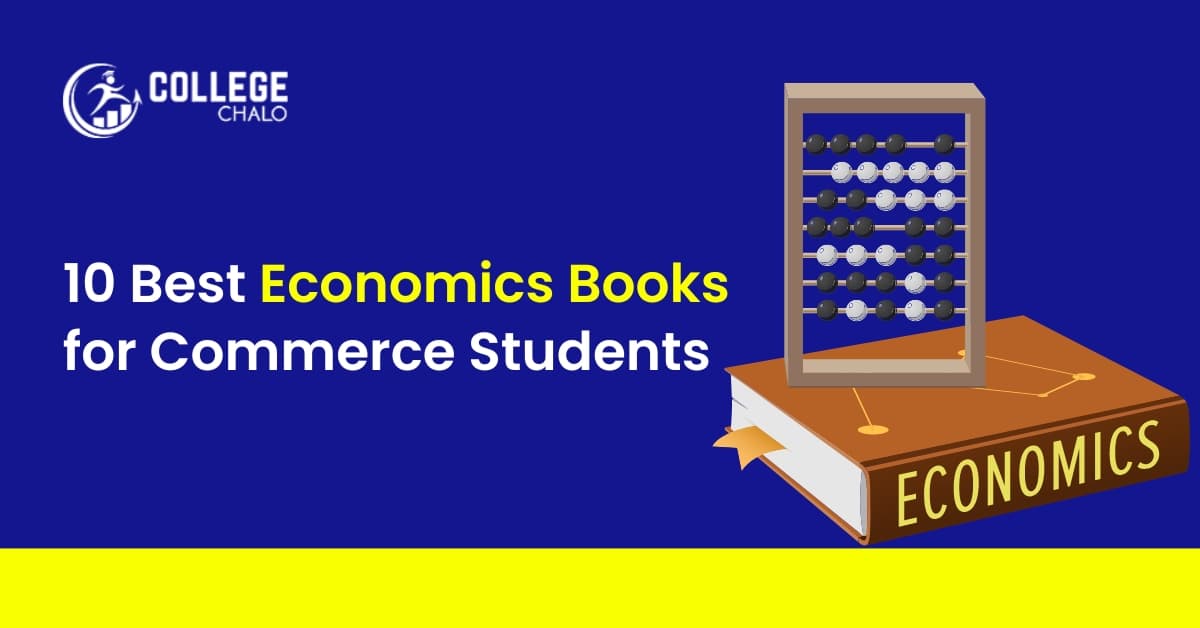
Despite its reputation as a “dismal science,” economics is crucial to our knowledge of the global economy and society. Learning economic fundamentals is not only a necessary course requirement for business majors; it’s an adventure that may help them better understand the dynamics at work in today’s global economy. In this fascinating investigation, we go into the world of knowledge to reveal the 10 Best Economic Books for Commerce Students carefully picked for business majors. These works of literature, ranging from timeless classics to cutting-edge discoveries, have the potential to make the often-intimidating study of economics an adventure in discovery that even a novice may enjoy.

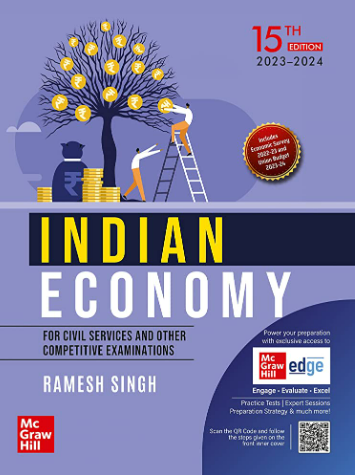
10 Best Economic Books for Commerce Students
1. “The Indian Economy” by Ramesh Singh
The economist and professor Ramesh Singh has created a masterpiece that will be invaluable to anybody taking a major test in India, such as the civil service exam. The Indian economy has a long and illustrious history, and this book provides a thorough and informative analysis of its present situation and bright future.
The Economic book format is user-friendly and straightforward since it was made with aspirants in mind. Singh’s work offers students with the key knowledge they need to succeed on examinations, in contrast to other publications that go into specialised topics of Indian economics. It’s a great primer for those new to macroeconomics and a helpful refresher for those with some experience.
2.”Introductory Macroeconomics”- Ahuja, H L.
Beginning with an introduction to the intriguing realm of economics and an emphasis on the basic principles of scarcity and choice, Ahuja’s book on introductory macroeconomics is a treasure. Complex ideas like supply and demand, market equilibrium, elastic and indifference curve analysis, and indifference pricing are deftly explained.

The Economic book explains the production, distribution, rent, interest, and profit theoretically. It describes monopolistic competition, oligopoly, and monopoly in capitalist economies. The book also covers average and marginal revenue, which affect economic decision-making.
3.”The Wealth of Nations”- Adam Smith’s
It is generally agreed that Adam Smith’s “The Wealth of Nations,” published in 1776 during the Scottish Enlightenment, was the first major contribution to the study of political economics. This masterwork examines the division of labour, capital and stock, the growth of wealth in many countries, trade and commerce, and the function of government in an economy over its five volumes.
Smith’s research and astute insights simplify the intricacies of economic systems for his readers. His explanation of how individual motives interact with the “invisible hand” of the market remains relevant today. The ideas and frameworks presented in “The Wealth of Nations” are still used as the basis for modern economics.

Also, read Latest Trends in Commerce Education 2023
4.”Principles of Economics”- Alfred Marshall
Economists’ understanding of costs and demand was profoundly altered when Alfred Marshall’s “Principles of Economics” demonstrated the inextricable relationship between the two in setting prices. Marshall’s diagram of demand and cost, which takes the form of a scissor blade, is a lovely illustration of this balance in action. In addition, he wisely recognises the complex interconnections existing within the economic system, elaborating on the ways in which shifts in demand for certain commodities have an effect on one another.
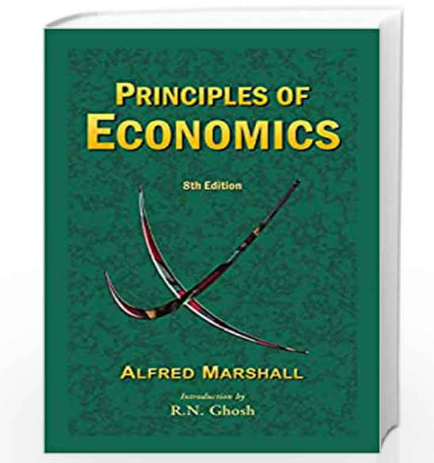
This text explores the theoretical foundations of economics and provides a thorough grounding in a range of ideas and their practical applications. Marshall’s writings provide a comprehensive view of management economics via examinations of such diverse themes as company administration, decision sciences, and economic theory. Marshall’s book promotes critical thinking and gives students the skills they need to handle the intricacies of the economic world by having them go beyond formulae and computations.

5. “India’s Economic Performance and Policies”- Uma Kapila
Uma Kapila’s “Indian Economy: Performance and Policies” covers the Indian economy in detail in five sections. The book discusses growth and distributional issues, as well as India’s agricultural, manufacturing, service, financial, and foreign economies.
Unique to this book is a plethora of material that can be used by both students and professionals alike: facts and statistics. This economic book contains a wealth of data and statistics for students and professionals. Book evaluations and ratings support its status as a top economics book. Kapila’s work helps readers assess India’s economic performance and policy decisions.
6. “March of the Indian Economy” – I C Dhingra
I C Dhingra’s March of the Indian Economy is a fascinating account of the growth and development of India’s economy. This book gives the reader a profound comprehension of the many factors that affect the Indian economy due to its intelligent debates and extensive analysis.
The author starts by discussing the cornerstones of the Indian economy: manufacturing, consumer spending, and business investment. Careful investigation of these fundamental factors introduces readers to their complex inner workings and helps them understand the dynamics at work underneath economic expansion.
In addition, the book provides a broad introduction to economics, introducing students to the field as a whole.
Also, read 10 Hot Emerging Jobs in Ecommerce
7. “The Economics of Discrimination”- Gary Becker’s
In the list of 10 Best Economic Books for Commerce Students, this particular emphasizes the types of markets in detail, an important key concept in macroeconomics. Human capital, as explored in this seminal work by Gary Becker published in 1957, refers to efforts that increase a person’s potential for future financial and psychological reward.
While education and on-the-job training take centre stage as Becker’s key forms of human capital, he also delves into topics like medical care, immigration, and price and income data analysis. This book is essential reading for anybody with an interest in economic progress and how it might be impacted by bias.
8. Managerial Economics: Theory, Applications, and Cases-. W. Bruce Allen, Keith Weigelt, Neil A. Doherty, and Edwin Mansfield’s
For higher education students this economic book provides theoretical concepts with reference to practical cases and situations for application in real business situations. This 1996 classic provides a 360-degree look at management economics, covering every angle to guarantee that readers leave with a firm grasp of the topic.
The writers acknowledge that Students need more than theoretical understanding and information to succeed. For this reason, the author includes not only theoretical frameworks and mathematical computations but also many examples and case studies from the actual world of economics. This book improves the state of the art in student resources with each new edition.
9. “Managerial Economics in a World Economy”- Dominick Salvatore’s
Dominick Salvatore is widely recognised as a leading authority on management economics thanks to his 1989 seminal work. What makes Salvatore’s work stand out is his inclusion of a worldwide viewpoint, which provides readers with a deeper grasp of managerial economics than just one element or location of operations.
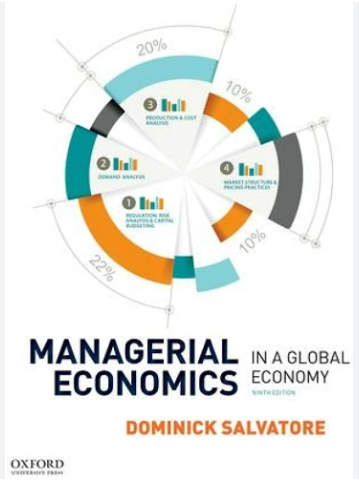
Many MBA students who are looking for a global perspective resort to this book since it presents a fuzzy definition that may help them pass their exams with flying colours. This book provides a fresh and useful angle on managerial economics by analysing the global economy through the lens of 28 new case studies, as well as discussing economic theory, business administration, and decision sciences.
10. Freakonomics -Stephen D. Levitt and Stephen J. Dubner
The unconventional methodology used by the authors of Freakonomics to explain the workings of the universe has earned the book praise as a pioneering achievement in economics. This thought-provoking read explores the unusual and the outlandish, drawing links between things at first seem to be unconnected.
Be prepared to be shocked by the use of economics to solve unusual life problems like as you learn why criminals often live with their moms, how real estate brokers and the KKK have startling similarities, and whether or not a gun or a swimming pool is more dangerous. Freakonomics’ funny and entertaining story not only entertains but also enlightens, providing a new lens through which to see our society’s complicated workings. This book will challenge your assumptions about the world and economics regardless of your background or level of interest in either subject.
CONCLUSION
As the quest’s finale approaches, the economic world’s mysteries begin to reveal themselves, providing a wealth of new knowledge for business majors. 10 Best Economic Books for Commerce Students have been beacons, shedding light on the intriguing interaction between human behaviour and market forces and the complex web of supply and demand. Books ranging from economic classics that have influenced the field for decades to cutting-edge works that contradict accepted knowledge are all examples of the dismal science’s lasting appeal.
If you’re a business student, these books are more than simply required reading; they’re also gateways to a world of expertise beyond the lecture hall and the boardroom. great students, armed with the knowledge gained from great works of literature, will be able to confidently, critically, and thoroughly grasp the dynamics that control our global marketplace.
Students of commerce, hearing the drumbeat of economic ideas in their heads, go out on their own, eager to make their mark in the business and economics world. Forever driven by the conviction that studying economics is not only an academic exercise but a potent instrument to build a bright and fair future for generations to come, they flip the pages and dig deeper into the complicated dance of market forces.
Also, read Top 20 MBA Colleges in Jaipur



